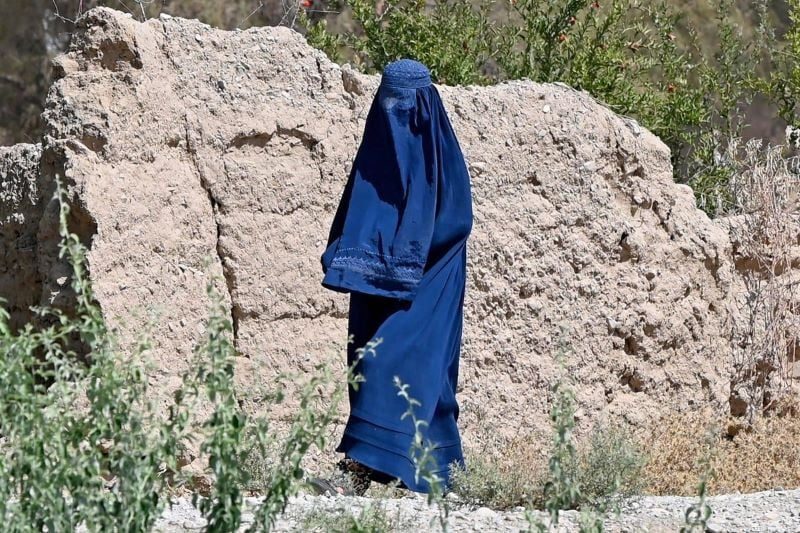The Taliban’s recent decision to halt cooperation with the UN mission in Afghanistan (UNAMA) over criticism of the new law has strained relations

KABUL: In the wake of a contentious new morality law, Taliban authorities have reiterated their commitment to engaging with the international community. The law, which imposes stringent rules on women’s dress and behavior, has ignited a storm of criticism from international bodies including the United Nations (UN) and the European Union (EU).
The recently ratified “Law on the Promotion of Virtue and the Prevention of Vice” mandates that women cover their entire bodies and faces in public and prohibits them from raising their voices. It also grants the Taliban’s morality police extensive powers to enforce these regulations. The law’s far-reaching restrictions on personal conduct have raised concerns about human rights and women’s freedoms in Afghanistan. Deputy Taliban government spokesman Hamdullah Fitrat addressed these concerns in a voice message to journalists, asserting that the Taliban is committed to engaging positively with all countries and organizations in line with Islamic law.
Fitrat emphasized that interaction is crucial for resolving issues and expanding diplomatic relations. The Taliban’s recent decision to halt cooperation with the UN mission in Afghanistan (UNAMA) over criticism of the new law has strained relations. UNAMA head Roza Otunbayeva described the law as a “distressing vision for Afghanistan’s future,” warning that it could hinder future cooperation between the Taliban and international organizations. The EU has echoed these concerns, emphasizing that the law could damage prospects for further engagement.
Despite international condemnation, the Taliban government has maintained that the law aligns with Islamic principles. Chief government spokesman Zabihullah Mujahid defended the legislation, labeling criticism as “arrogance” and asserting that the law is rooted in Islamic teachings. UN Secretary-General Antonio Guterres’ spokesman, Stephane Dujarric, assured that the UN would continue to engage with all stakeholders in Afghanistan, including the Taliban.
Dujarric emphasized the UN’s commitment to human rights and equality, urging the Taliban to open more channels for diplomatic engagement. Since the Taliban’s return to power in 2021, no country has officially recognized their government. However, the Taliban has made some diplomatic advances, including participating in UN-hosted talks in Qatar. As Afghanistan grapples with this new law, the international community continues to monitor the situation closely, balancing diplomatic engagement with concerns over human rights and gender equality.
#TalibanMoralityLaw, #UNAMA, #HumanRights, #Afghanistan, #InternationalRelations, #WomenRights, #IslamicLaw, #UNCondemnation, #EUConcerns, #DiplomaticEngagement, #UNAfghanistan, #GenderEquality



